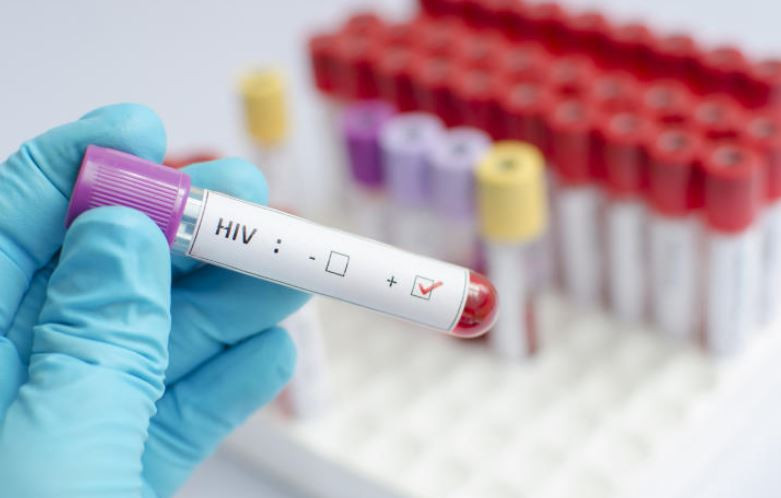
The Ministry of Health has witnessed a surge in demand for HIV self-testing services (HIVST) among men.
Since the adoption of this service in 2018, there has been a notable increase in the number of men accessing testing services.
According to the 2023 HIV estimates, 89.5 per cent of the male population now know their HIV status, compared to only 73 per cent reported in 2018 based on the Kenya Population-based HIV Impact Assessment (KENPHIA).
Dr. Jonah Onentiah, the HIV Prevention Manager at the National AIDS and STI Control Program (NASCOP), noted that most men identified through HIVST kits fall within the age group of 15 to 64 years-a demographic often characterized by poor health-seeking behavior.
"HIV self-testing kits have significantly improved the identification of men, youth, and key populations who may not have the time to visit healthcare facilities due to the nature of their work," said Dr. Onentiah.
The self-testing process involves individuals collecting their own specimens, performing the test, and interpreting the results-usually in a private setting. These testing kits are available at hospitals and private chemists across the country.
Under the ministry's policy guidelines, pregnant women receive the kits during Antenatal Clinics (ANC), which they can then take home for HIV screening with their spouses.
"Since most men do not accompany women to healthcare facilities, providing self-testing kits to women ensures testing at home," said Dr. Onentiah.
- Nairobi health workers protest salary delays as county pledges payment soon
- Why Kenya's babies are missing mother's milk
- How genes may influence breast milk production
- UHC workers threaten strike, demand permanent terms and gratuity
Keep Reading
However, Dr Onentiah says, self-testing is a screening tool, not a diagnostic method. Reactive (positive) self-test results require confirmation by a trained health provider using the national three-test HIV testing algorithm.
Positive cases are subsequently enrolled in the Antiretroviral Therapy (ART) program, while negative results prompt adherence to preventive measures.
Kisumu County HIV Coordinator, Eunice Kinywa, praised self-testing for increasing enrollment in HIV treatment. She noted that networks like pregnant women and home-based testing have contributed to enhanced prevention and treatment efforts.
Kenya currently has 1,377,784 people living with HIV, with 1.2 million of them on ART.
Despite the success of self-testing, challenges persist. Alice Njoroge, Kajiado County AIDS and Sexually Transmitted Infections (STI) Coordinator, pointed out that some men fail to return their test results to hospitals for further diagnostic testing.
"Some men do not bring their results back to the hospital," said Njoroge. "We make phone calls to those we supplied the kits to, but not all respond. Some men provide incorrect mobile phone numbers."
Njoroge explained that there are two models of HIV self-testing: assisted and non-assisted. The non-assisted approach allows clients to test privately in their own spaces, while assisted testing involves healthcare providers assisting clients in a facility.
Christabel Awuor, a laboratory officer at NASCOP, emphasized the importance of following testing procedures and instructions to ensure accurate results. She advised sourcing testing kits from registered pharmacies and health facilities.
"HIV self-testing is a screening tool," clarified Awuor. "It does not provide a definitive HIV-positive diagnosis. Positive self-test results require confirmation using the national testing algorithm, while negative results should prompt re-testing after three months."
Awuor said self-testing can significantly increase access to and coverage of HIV testing. It also offers privacy, avoiding stigma associated with facility-based testing.
"Self-testing encourages testing among key populations, including men who have sex with men, sex workers, and intravenous drug users," said Awuor.
Kenya's self-testing policy, aligned with World Health Organization (WHO) guidelines, aims to achieve the UNAIDS 95-95-95 goals: ensuring 95 per cent of the population know their HIV status, 95 per cent receive treatment, and 95 per cent achieve viral load suppression.
The guidelines provide a comprehensive framework for self-testing, outlining approaches, procedures, benefits, and risks. As Kenya continues its efforts, self-testing remains a vital strategy in the fight against HIV/AIDS.
 The Standard Group Plc is a multi-media organization with investments in media
platforms spanning newspaper print
operations, television, radio broadcasting, digital and online services. The
Standard Group is recognized as a
leading multi-media house in Kenya with a key influence in matters of national
and international interest.
The Standard Group Plc is a multi-media organization with investments in media
platforms spanning newspaper print
operations, television, radio broadcasting, digital and online services. The
Standard Group is recognized as a
leading multi-media house in Kenya with a key influence in matters of national
and international interest.











